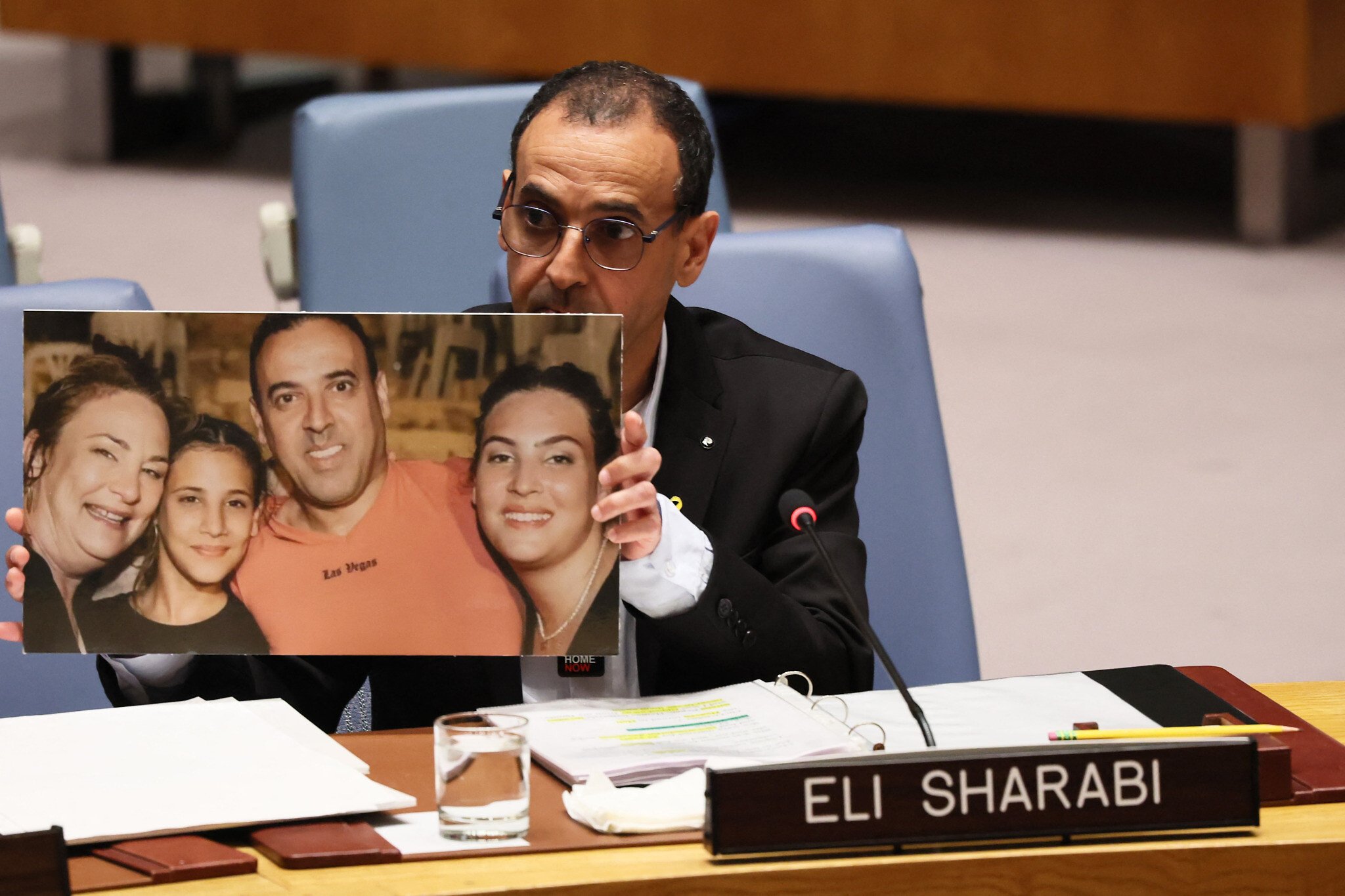Eli Sharabi stood before the United Nations Security Council not as a diplomat, but as a survivor. After 491 days of brutal captivity in Gaza, the 53-year-old Israeli shared a harrowing account of the torment he endured at the hands of Hamas—and issued a searing rebuke of the international community’s silence.
“I was fed a piece of pita a day. Maybe a sip of tea. Hunger consumed everything. They beat me. They broke my ribs,” Sharabi testified. “I just wanted a piece of bread.”
His voice, though calm, carried the weight of unimaginable pain. Sharabi detailed how Hamas fighters gorged themselves on international aid bearing UN and UNRWA logos, while he and fellow hostages were left to starve. “Hamas eats like kings while hostages starve. I saw Hamas terrorists carrying UN boxes into the tunnels. Dozens and dozens of them.”
The Security Council listened as Sharabi revealed how Hamas twisted humanitarian aid into a lifeline for terrorists, not civilians. The very organizations meant to bring relief had their logos paraded through underground tunnels, feeding the captors while their victims wasted away.
Yet what drew even sharper condemnation was the speech given by Palestinian UN envoy Riyad Mansour. Offering only a passing condolence to Sharabi, Mansour instead launched into accusations of Israeli war crimes, alleging genocide and displacement. He failed to even mention the hostages still held in Gaza—a glaring omission that infuriated Sharabi and Israeli officials alike.
“He has lost both his shame and his humanity,” said Sharon Sharabi, Eli’s brother. “He talks about war crimes while the hostages are still suffering.”
Danny Danon, Israel’s ambassador to the UN, demanded accountability. “Since October 7, you’ve passed 77 resolutions. Not one condemns Hamas. Not one acknowledges the crimes committed against our people. Not one mentions the hostages.”
Eli Sharabi’s story is not just one of survival—it is an indictment. Of Hamas, for their unspeakable cruelty. Of UN institutions, for the exploitation of their aid. And of the international community, for its deafening silence.
“For 491 days, I starved, I was chained, I begged for my humanity,” he said. “And no one came. No one in Gaza helped me. Civilians saw us. They knew. And they did nothing.”
Sharabi’s wife, Lianne, and daughters Yahel and Noiya were murdered on October 7 in Kibbutz Be’eri. He survived. Not to forget, but to bear witness.
“Bring them all home,” he told the Council. “No more excuses. No more delays. If you stand for humanity—prove it.”
His presence turned the UN floor into a courtroom of conscience. His words, a cry not only for justice, but for truth. As the world debates resolutions and ceasefires, Eli Sharabi stands as living proof of the price of indifference.






